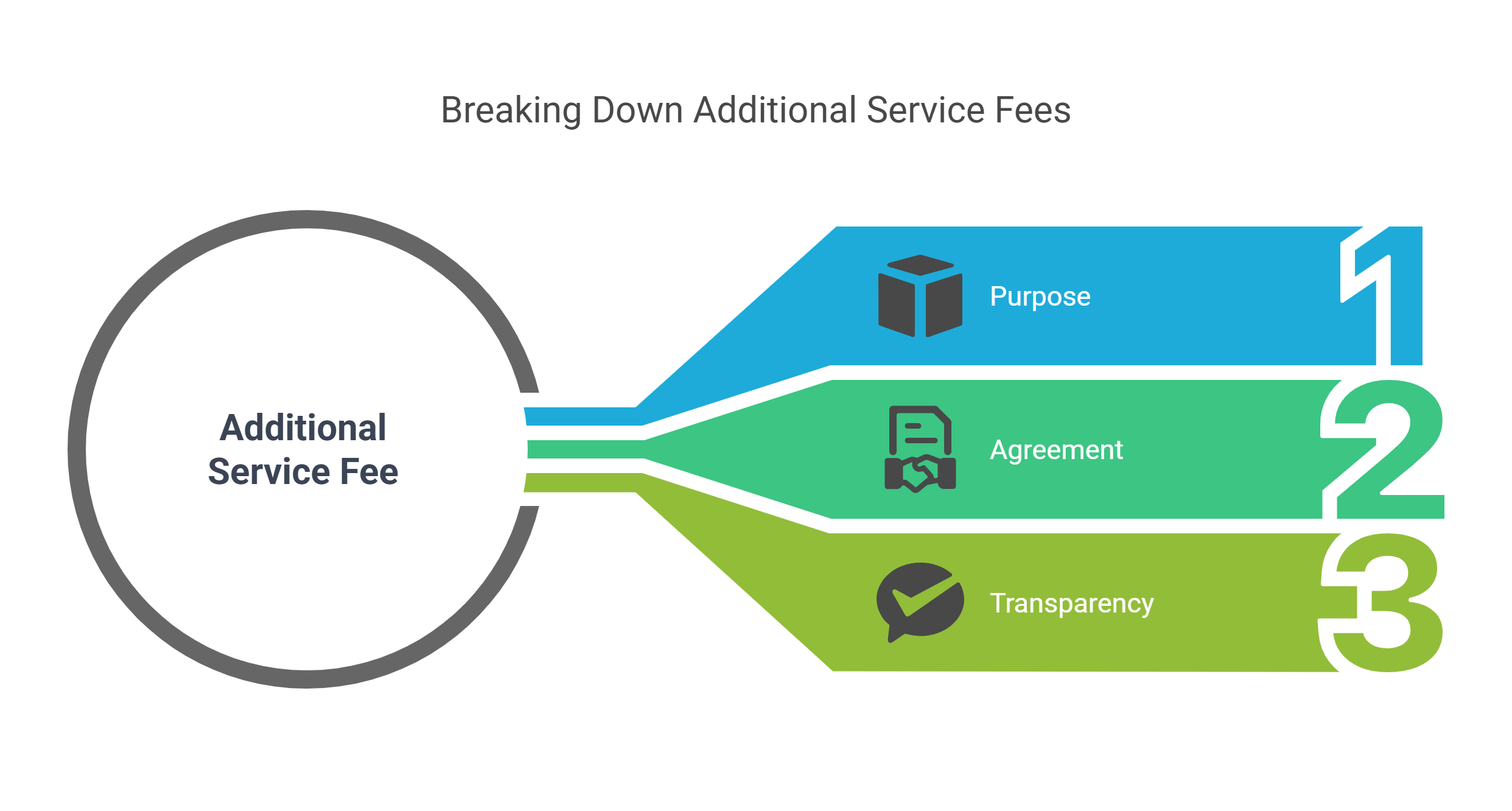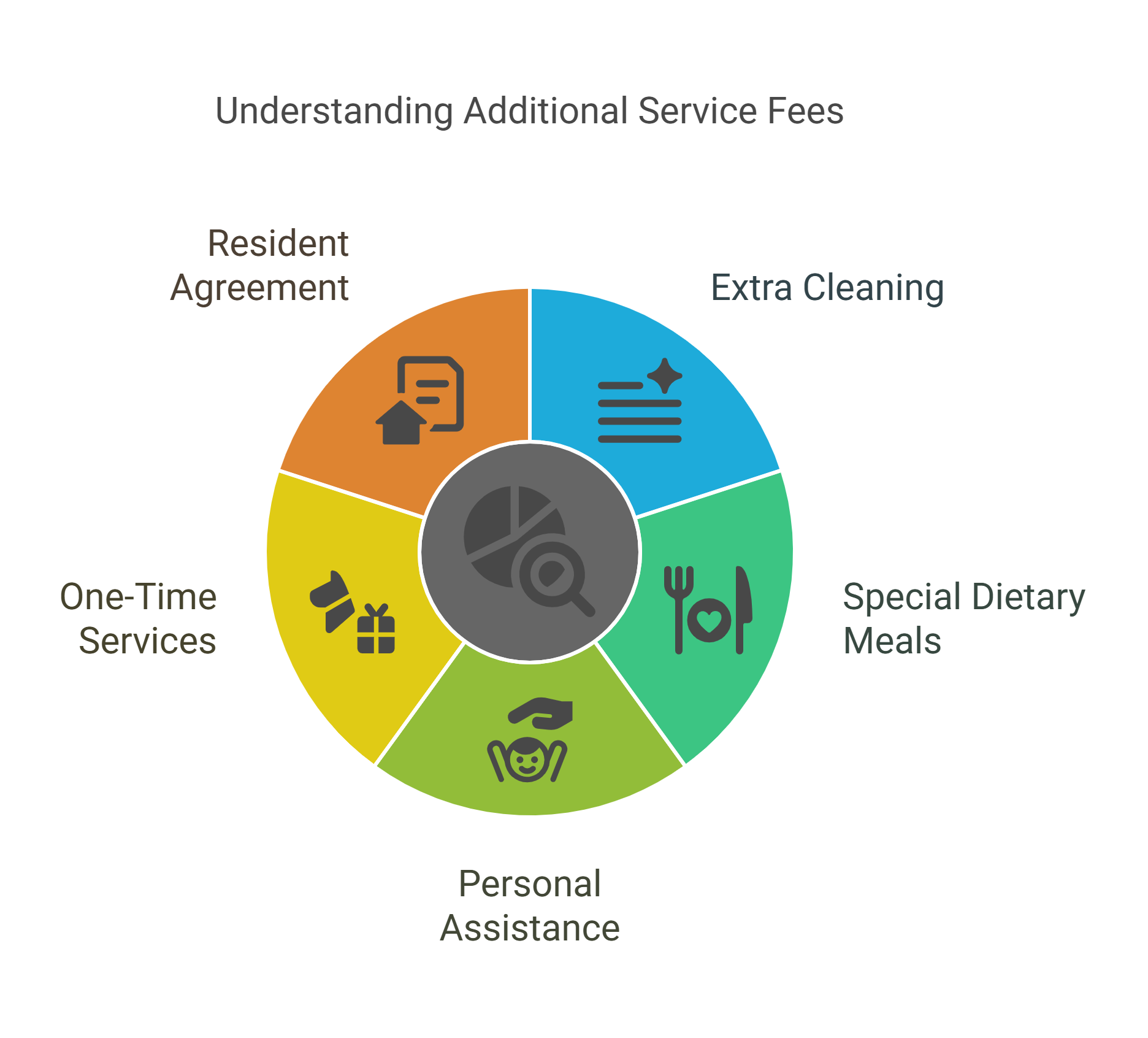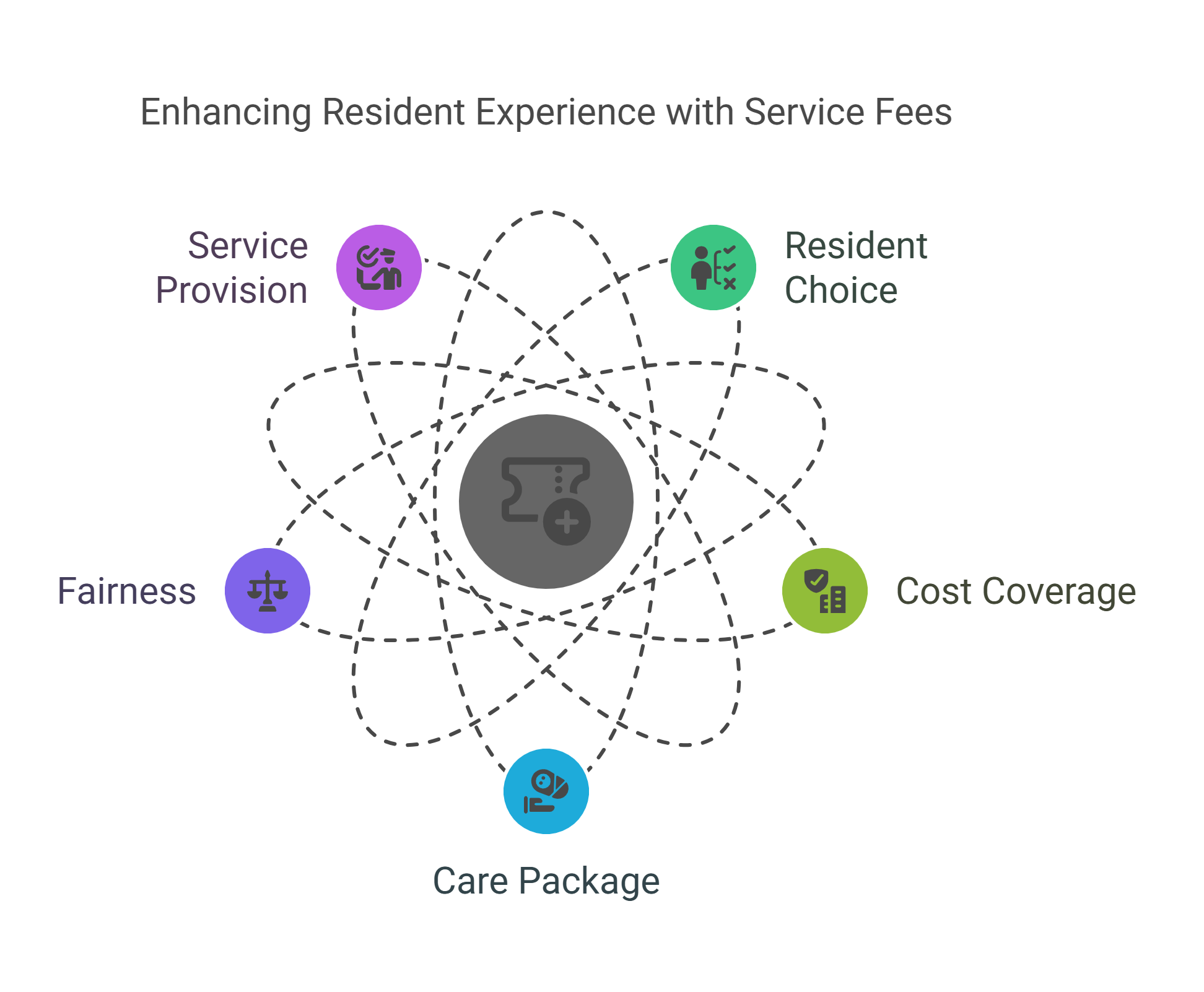What is an Additional Service Fee?
An additional service fee is an extra cost that a resident pays for extra services in a residential aged care facility. This fee is separate from the basic cost of living in the facility. It is charged for extra services that the resident chooses to have. The fee is part of the agreement between the resident and the care provider. It helps the facility cover the cost of services that are not included in the standard care package. Additional service fee is written in the contract so that the resident knows what extra charges to expect.

How is the Additional Service Fee Calculated?
The calculation of the additional service fee is based on several factors. These factors include the type of extra service provided, the amount of time needed to deliver the service, and the cost of the supplies or equipment used. The fee may vary from one service to another. For example, a fee may be charged for extra cleaning, special meals, or entertainment events. The cost is clearly stated in the resident agreement so that there are no surprises. The calculation is done in a fair way to match the cost of the extra services with the fee that is charged.
Who Pays the Additional Service Fee?
The responsibility for paying the additional service fee falls on the resident. In some cases, family members may help to pay the fee if the resident is unable to cover the cost. The fee is paid from the resident’s personal funds or from other approved sources. The agreement in the facility explains how and when the fee is collected. Clear instructions are given to avoid any confusion. Both the resident and the care provider have a clear understanding of the payment process.
What Services are Covered by the Fee?

The additional service fee covers extra services that are not part of the basic package of care. These services may include extra cleaning of the room, special dietary meals, or personal assistance with extra activities. The fee can also cover services that are offered on a one-time basis, such as celebrations, special events, or extra health checks. The details of what extra services are covered are listed in the resident agreement. This list helps the resident know what to expect when the fee is applied. The extra services are meant to give the resident more choices and a better living experience.
How is the Fee Collected and Recorded?
The fee is collected on a regular basis. The payment schedule may be weekly or monthly, as set out in the resident agreement. When the fee is collected, the facility keeps detailed records. These records show the amount paid, the date of payment, and the extra services that have been provided. Record keeping is important because it makes the process clear for both the resident and the care provider. If there is ever a need to check the records, both parties have access to the same information. A clear system of record keeping helps to prevent any misunderstandings about the fee.
Why is the Additional Service Fee Important?

The additional service fee is important because it allows residents to choose extra services that improve their living experience. It helps the facility to cover the extra costs that come with providing these extra services. The fee is part of the overall care package that is offered to residents. With clear rules about what is covered and how much it costs, the facility creates a fair system. This fairness makes the living environment better for everyone involved. The fee also shows that the facility is willing to provide extra services that are not part of the basic package, giving residents more choices in their daily living.
The Impact on Residents and Staff
For residents, paying the additional service fee means having the option to get extra services when they need them. The fee supports a better quality of life by offering services that can be chosen as needed. Staff members are also aware of the fee and what it covers. This clarity helps them to deliver the extra services with a clear understanding of what is expected. Both the residents and the staff benefit from a system where extra services are offered openly and fairly.
Final Thoughts
An additional service fee in aged care is a way to pay for extra services that are not included in the basic care package. The fee is clearly explained in the resident agreement and is calculated fairly based on the service provided. With clear rules and record keeping, the fee system builds trust between the resident and the care provider. The extra services supported by this fee give residents more choices and contribute to a better living experience. The process is simple and written in a way that is easy to understand, making it suitable for anyone reading the agreement.

.png)
.png)




